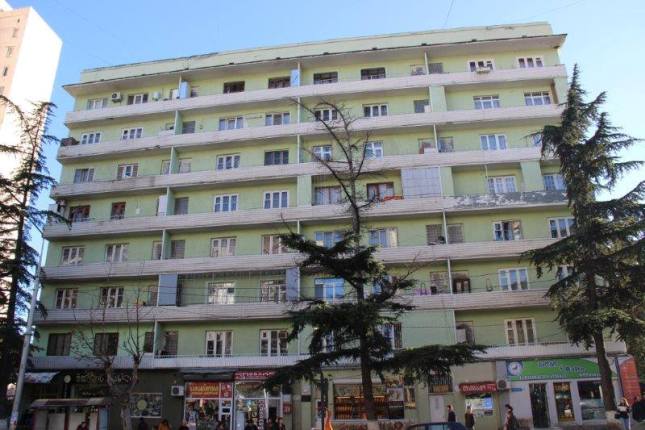The Law of Georgia on Homeowner Association entered into force in 2007. This law regulates the maintenance of common property of the members of a homeowners’ association. A homeowners’ association is a union of owners of residential or non-residential spaces, including the space used for commercial purposes, located in an apartment building (the Law of Georgia on Homeowner Association, 2007).It is noteworthy that the law and the related information campaign have resulted in the increased registration of the homeowners’ associations, which is a sharp growth compared to the initial indicator. According to the law, a homeowner association (HOA) is considered formed in a multi-dwelling house – a house with more than two apartments.
In Georgia, a HOA can have a statute and other required requisites such as a stamp, bank account, etc. Being registered in Gamgeoba (the local self-government) allows a HOA to take part in the co-financing programme that covers partially the residential building refurbishment, etc.
The Chapter 5 of Tbilisi city budget for 2017 is dedicated to the priority “Homeowner Associations’ Development”, and its sub-programme is “Facilitating Homeowner Association’ Development”. So far it is reflected in the co-financing projects. There are also separate initiatives – pilot projects. Ten years after the adoption of the Law on Homeowner Association of Georgia, the positive trends are visible but the challenges still remainlarge-scale. The burning issues are: the need of raising awareness about the responsibility regarding common property management and the need of the professional facility management, the challenge of gathering membership fees, degraded housing stock, maintaining neatness and order, energy efficiency, the difficulty of creating a barrier-free environment, effectiveness of HOA management, etc.
In order to respond to existing problems and resolve them, a consistent approach is needed. In this regard, steps should be taken in different directions to reach tangible results. First of all, the priority should be the protection of the interests of the population, the maintenance and development of the housing stock. On the other hand, existing constraints should be taken into consideration, which are the acute socio-economic background, degraded and damaged housing stock, and the lack of effective management. Nevertheless, it is necessary to discuss the possibilities of the existing situation, or that might appear in case of a change. In this regard, it is interesting to pay attention to the international experience and whether it would be promising to introduce the best international practices in Georgia.
We believe that forthe introduction of the modern methods and principles of real estate management in Georgia, it is necessary to introduce amendments to the Law of Georgia on Homeowner Association.
Professional Management
In Georgia, in most cases Homeowners’ Associations are managed by the chairpersons that are elected among the HOA members (owners of apartments and of commercial / noncomercial spaces), and in rare cases by invited managers. In the example of most HOAs in Georgia, management of multidwelling houses is not a paid activity since the law does not require such, and this habit has not been formed in practice either.
It is noteworthy that multidwelling houses in the EU countries are predominantly managed by professional managers- natural or legal persons. In the case of the multidwelling house with a small number of apartments, the chairperson elected among the homeowners is the main manager. In some countries this issue is regulated by legislation, and in some cases it is based on the customary practice.
Germany
The owner of a multidwelling house can be both natural and legal person. The Homeowner Association (joint ownership) in Germany is automatically generated in multidwelling houses where there are at least two owners. There is no separate law on the Homeowner Associations. Common property management is governed by various laws.
The legislative base that regulates the relations between the homeowners.
• The German law on residential property (Wohnungseigentumsgesetz)
• Declaration of partition of property (Teilungserklärung)
• House rules(Hausordnung)
There is no shared construction practice in Germany. The constructed house has one owner (mainly, the investor). Before selling the first apartment, the construction company, as a rule, requests the “certificate of the division of the common and shared ownership” from the regional administration, and then, with the notary drafts “the declaration of the partition of the common property in the house”. As a result, the house is divided into private apartments. The homeowners’ association is considered to be formed after the first apartment is sold (e.g., when there are two owners). The new owner of the apartment automatically becomes a member of the HOA and conforms to its statute.
Latvia
According to the Law of Latvia on “Residential Property”, a joint stock company, limited liability company, co-operative society, association or another type of legal or natural person may be invited as a manager of a homeowners’ association. If the residential area exceeds 1500 square metres, a professional real estate management and a manager with the relevant education is required. The Ministry of Economy administers the Registry of Housing Administrators (https://bis.gov.lv/bisp/), where all natural and legal entities involved in housing management are registered. As of September 1, 2016, 644 managershave been registered.
The education and skills relevant to the fourth level under the Latvian Education Qualification Framework and at least fifth level under the European Qualification Framework is required for managing a multi-dwelling house in Latvia. The Riga Technical University has developed a Bachelor, Master, and Ph.D. programs for real estate management. Various private educational institutions have developed professional education programs. If the Chairperson of the Homeowner Association will not be elected, the housing manager shall be appointed by the local self-government.
This article has been developed in the framework of the EU-supported project “The way forward in the housing sector: empowering grass root homeowners’ associations in Azerbaijan, Belarus, Georgia, Moldova and Ukraine” by Charity Humanitarian Centre “Abkhazeti”. The document does not reflect the official opinion of the European Union.
Please, follow this link for the additional information: http://bit.ly/2hrdww9




